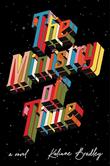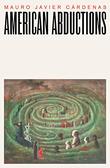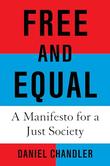
by Leigh Bardugo ‧ RELEASE DATE: April 9, 2024
Lush, gorgeous, precise language and propulsive plotting sweep readers into a story as intelligent as it is atmospheric.
In 16th-century Madrid, a crypto-Jew with a talent for casting spells tries to steer clear of the Inquisition.
Luzia Cotado, a scullion and an orphan, has secrets to keep: “It was a game she and her mother had played, saying one thing and thinking another, the bits and pieces of Hebrew handed down like chipped plates.” Also handed down are “refranes”—proverbs—in “not quite Spanish, just as Luzia was not quite Spanish.” When Luzia sings the refranes, they take on power. “Aboltar cazal, aboltar mazal” (“A change of scene, a change of fortune”) can mend a torn gown or turn burnt bread into a perfect loaf; “Quien no risica, no rosica” (“Whoever doesn’t laugh, doesn’t bloom”) can summon a riot of foliage in the depths of winter. The Inquisition hangs over the story like Chekhov’s famous gun on the wall. When Luzia’s employer catches her using magic, the ambitions of both mistress and servant catapult her into fame and danger. A new, even more ambitious patron instructs his supernatural servant, Guillén Santángel, to train Luzia for a magical contest. Santángel, not Luzia, is the familiar of the title; he has been tricked into trading his freedom and luck to his master’s family in exchange for something he no longer craves but can’t give up. The novel comes up against an issue common in fantasy fiction: Why don’t the characters just use their magic to solve all their problems? Bardugo has clearly given it some thought, but her solutions aren’t quite convincing, especially toward the end of the book. These small faults would be harder to forgive if she weren’t such a beautiful writer. Part fairy tale, part political thriller, part romance, the novel unfolds like a winter tree bursting into unnatural bloom in response to one of Luzia’s refranes, as she and Santángel learn about power, trust, betrayal, and love.
Lush, gorgeous, precise language and propulsive plotting sweep readers into a story as intelligent as it is atmospheric.Pub Date: April 9, 2024
ISBN: 9781250884251
Page Count: 400
Publisher: Flatiron Books
Review Posted Online: Feb. 3, 2024
Kirkus Reviews Issue: March 1, 2024
Share your opinion of this book
More by Leigh Bardugo
BOOK REVIEW
BOOK REVIEW
by Leigh Bardugo ; illustrated by Dani Pendergast
BOOK REVIEW

by Kristin Hannah ‧ RELEASE DATE: Feb. 6, 2024
A dramatic, vividly detailed reconstruction of a little-known aspect of the Vietnam War.
Awards & Accolades
Likes

67
Our Verdict

GET IT
New York Times Bestseller
A young woman’s experience as a nurse in Vietnam casts a deep shadow over her life.
When we learn that the farewell party in the opening scene is for Frances “Frankie” McGrath’s older brother—“a golden boy, a wild child who could make the hardest heart soften”—who is leaving to serve in Vietnam in 1966, we feel pretty certain that poor Finley McGrath is marked for death. Still, it’s a surprise when the fateful doorbell rings less than 20 pages later. His death inspires his sister to enlist as an Army nurse, and this turn of events is just the beginning of a roller coaster of a plot that’s impressive and engrossing if at times a bit formulaic. Hannah renders the experiences of the young women who served in Vietnam in all-encompassing detail. The first half of the book, set in gore-drenched hospital wards, mildewed dorm rooms, and boozy officers’ clubs, is an exciting read, tracking the transformation of virginal, uptight Frankie into a crack surgical nurse and woman of the world. Her tensely platonic romance with a married surgeon ends when his broken, unbreathing body is airlifted out by helicopter; she throws her pent-up passion into a wild affair with a soldier who happens to be her dead brother’s best friend. In the second part of the book, after the war, Frankie seems to experience every possible bad break. A drawback of the story is that none of the secondary characters in her life are fully three-dimensional: Her dismissive, chauvinistic father and tight-lipped, pill-popping mother, her fellow nurses, and her various love interests are more plot devices than people. You’ll wish you could have gone to Vegas and placed a bet on the ending—while it’s against all the odds, you’ll see it coming from a mile away.
A dramatic, vividly detailed reconstruction of a little-known aspect of the Vietnam War.Pub Date: Feb. 6, 2024
ISBN: 9781250178633
Page Count: 480
Publisher: St. Martin's
Review Posted Online: Nov. 4, 2023
Kirkus Reviews Issue: Dec. 1, 2023
Share your opinion of this book
More by Kristin Hannah
BOOK REVIEW
BOOK REVIEW
BOOK REVIEW
More About This Book
PERSPECTIVES
BOOK TO SCREEN

by Percival Everett ‧ RELEASE DATE: March 19, 2024
One of the noblest characters in American literature gets a novel worthy of him.
Mark Twain's Adventures of Huckleberry Finn as told from the perspective of a more resourceful and contemplative Jim than the one you remember.
This isn’t the first novel to reimagine Twain’s 1885 masterpiece, but the audacious and prolific Everett dives into the very heart of Twain’s epochal odyssey, shifting the central viewpoint from that of the unschooled, often credulous, but basically good-hearted Huck to the more enigmatic and heroic Jim, the Black slave with whom the boy escapes via raft on the Mississippi River. As in the original, the threat of Jim’s being sold “down the river” and separated from his wife and daughter compels him to run away while figuring out what to do next. He's soon joined by Huck, who has faked his own death to get away from an abusive father, ramping up Jim’s panic. “Huck was supposedly murdered and I’d just run away,” Jim thinks. “Who did I think they would suspect of the heinous crime?” That Jim can, as he puts it, “[do] the math” on his predicament suggests how different Everett’s version is from Twain’s. First and foremost, there's the matter of the Black dialect Twain used to depict the speech of Jim and other Black characters—which, for many contemporary readers, hinders their enjoyment of his novel. In Everett’s telling, the dialect is a put-on, a manner of concealment, and a tactic for survival. “White folks expect us to sound a certain way and it can only help if we don’t disappoint them,” Jim explains. He also discloses that, in violation of custom and law, he learned to read the books in Judge Thatcher’s library, including Voltaire and John Locke, both of whom, in dreams and delirium, Jim finds himself debating about human rights and his own humanity. With and without Huck, Jim undergoes dangerous tribulations and hairbreadth escapes in an antebellum wilderness that’s much grimmer and bloodier than Twain’s. There’s also a revelation toward the end that, however stunning to devoted readers of the original, makes perfect sense.
One of the noblest characters in American literature gets a novel worthy of him.Pub Date: March 19, 2024
ISBN: 9780385550369
Page Count: 320
Publisher: Doubleday
Review Posted Online: Dec. 16, 2023
Kirkus Reviews Issue: Jan. 15, 2024
Share your opinion of this book
More About This Book
PERSPECTIVES
PERSPECTIVES
© Copyright 2024 Kirkus Media LLC. All Rights Reserved.
Hey there, book lover.
We’re glad you found a book that interests you!
We can’t wait for you to join Kirkus!
It’s free and takes less than 10 seconds!
Already have an account? Log in.
OR
Trouble signing in? Retrieve credentials.
Welcome Back!
OR
Trouble signing in? Retrieve credentials.
Don’t fret. We’ll find you.





